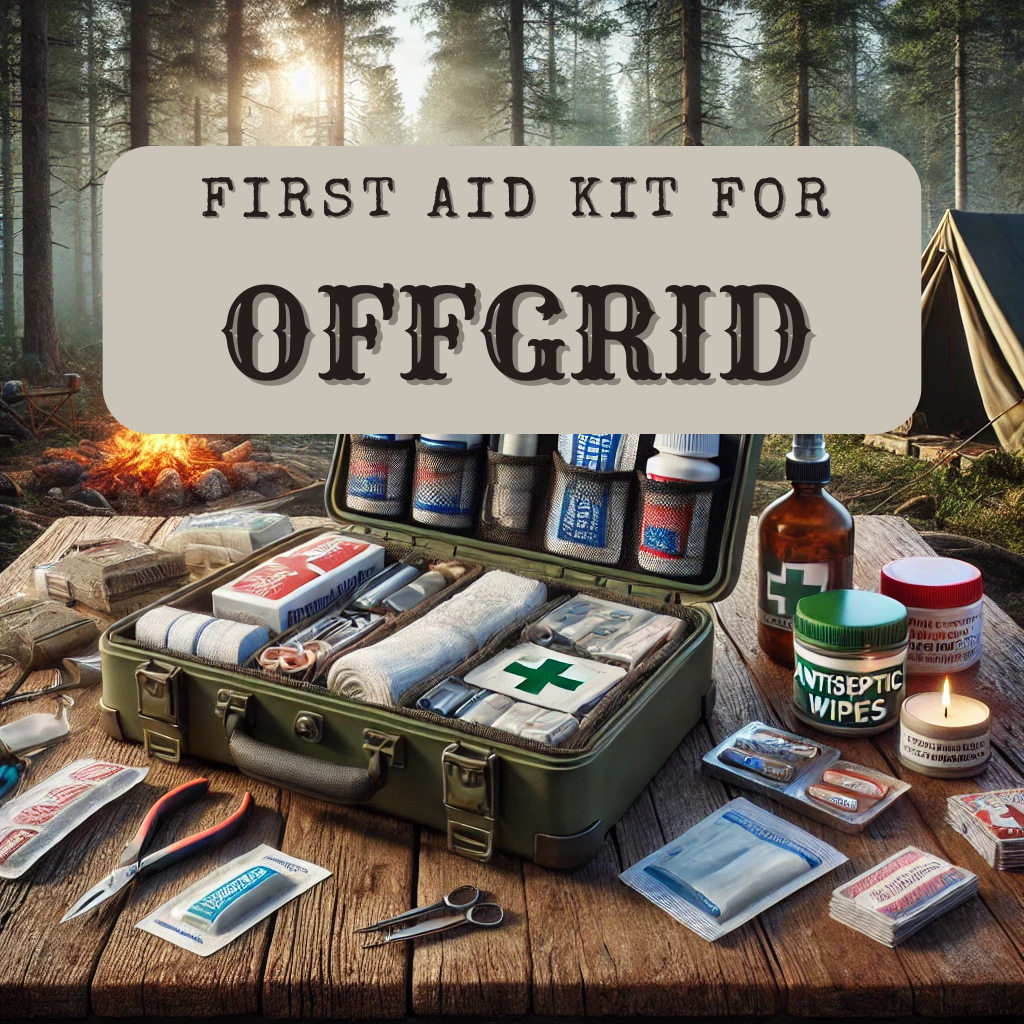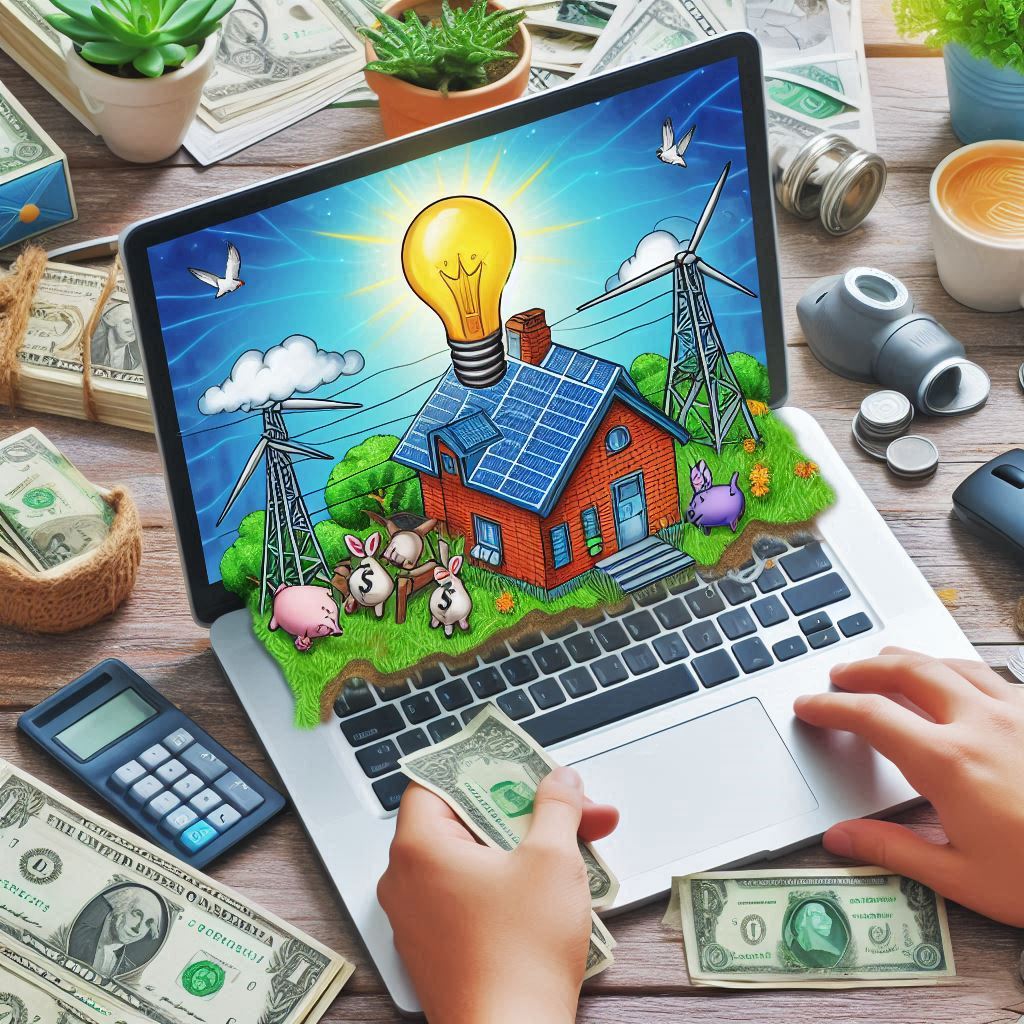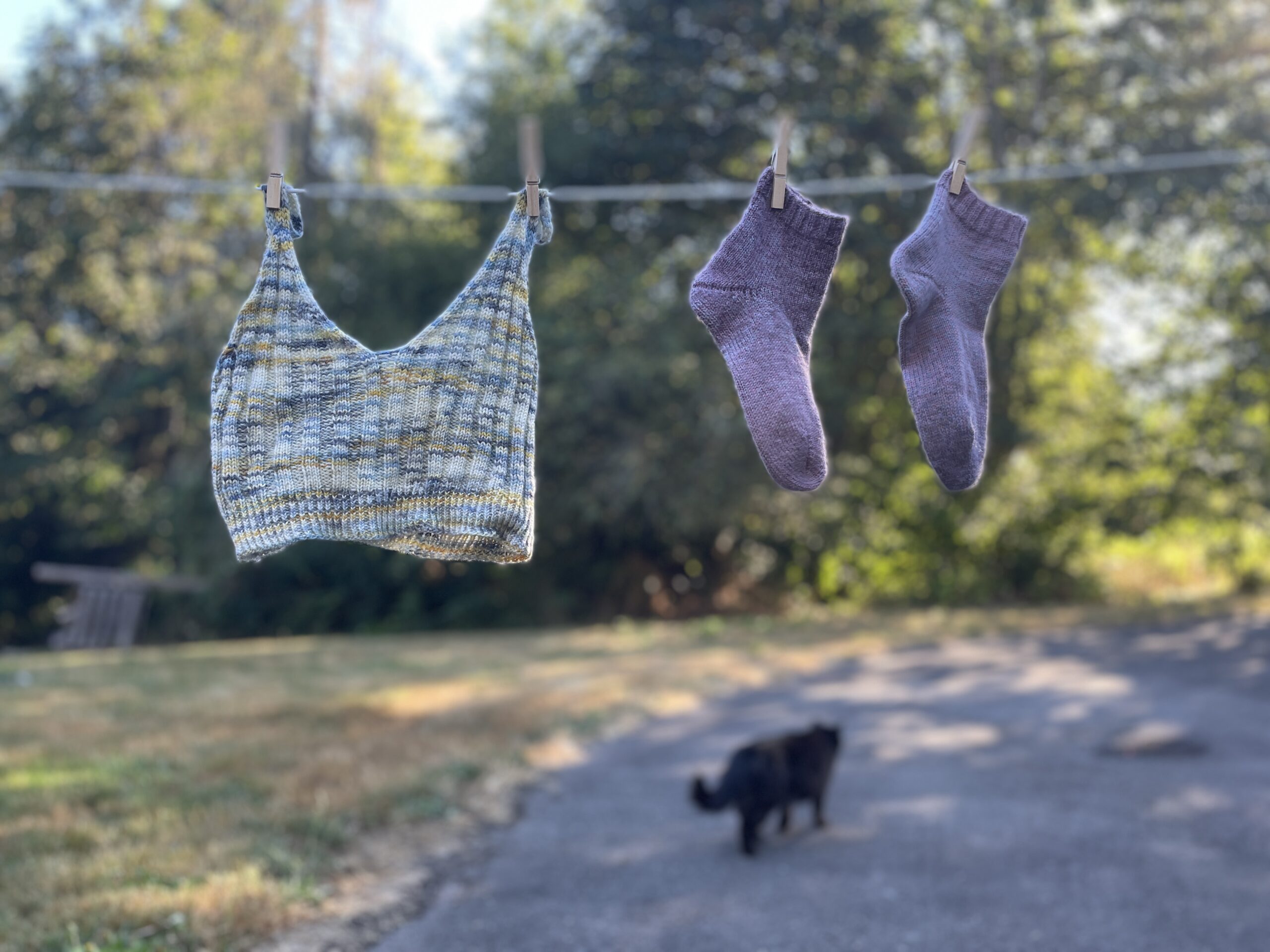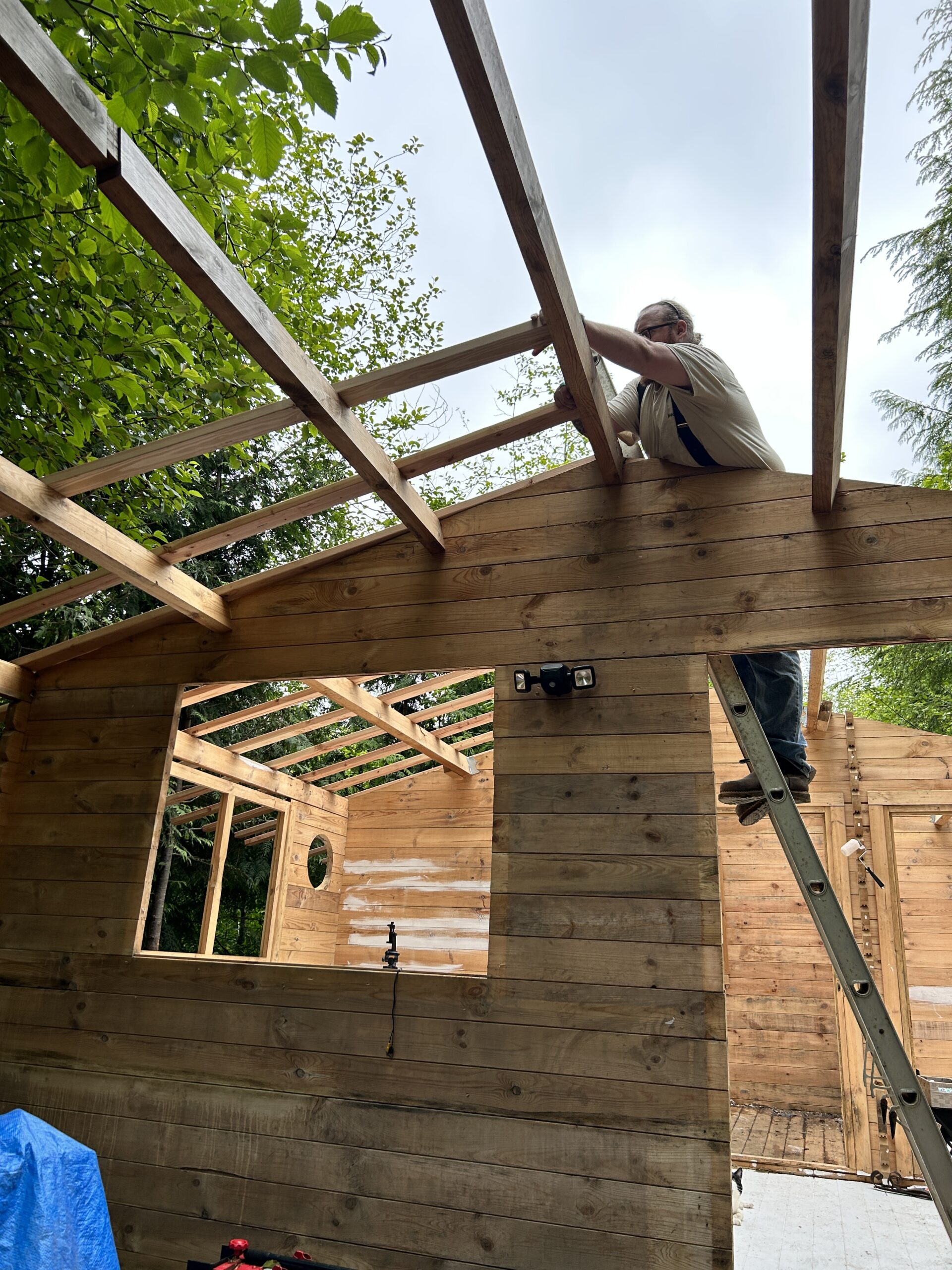- You have to grow all of your own food.
One of the most persistent myths about off-grid living is the idea that you must grow 100% of your own food. While growing your own fruits, vegetables, and even raising livestock is a common aspect of the lifestyle, it’s by no means a strict requirement. Off-grid living is about independence and sustainability—not about cutting ties with every modern convenience, including grocery stores.
Growing all of your own food is an admirable goal, but it’s not always practical. Climate, soil quality, and the amount of available land play a significant role in what you can produce. For instance, it’s nearly impossible to grow crops like rice or sugar in cooler climates, and some foods, like avocados or bananas, may be completely out of reach unless you live in a tropical area.
Another factor is time. Managing a garden or a small farm takes considerable effort, and not everyone has the capacity to grow everything while also maintaining other essential off-grid systems like water and energy. Many off-gridders strike a balance, growing staple crops and raising chickens or goats while supplementing with store-bought essentials.
Ultimately, off-grid living is about designing a sustainable lifestyle that works for you. For some, that means growing food; for others, it means sourcing locally or stocking up occasionally at a grocery store. The beauty of off-grid living lies in its flexibility and the ability to create a life that fits your unique needs and circumstances.
- Living off-grid means giving up modern conveniences
A common misconception about off-grid living is that it requires giving up all modern conveniences—no hot showers, no refrigeration, and certainly no internet. While it’s true that off-grid living means cutting ties with public utilities, it doesn’t mean sacrificing comfort or technology. In fact, advancements in renewable energy and off-grid systems make it possible to enjoy many, if not all, of the luxuries of modern life.
Take electricity, for example. Solar panels, wind turbines, and battery storage systems allow off-gridders to power appliances, lights, and even entertainment systems. Many off-grid homes boast fully functional kitchens with refrigerators, ovens, and other modern amenities. Water heaters, powered by propane or solar energy, ensure access to hot showers, while composting toilets and greywater systems provide eco-friendly sanitation.
Internet access is another area where technology bridges the gap. Satellite internet and mobile hotspots enable off-gridders to stay connected, whether for remote work, homeschooling, or simply keeping in touch with loved ones.
Off-grid living is not about deprivation; it’s about independence. Instead of relying on public utilities, off-gridders create self-sustaining systems tailored to their needs. This often means designing a home that blends sustainability with comfort, proving that you don’t have to choose between living off-grid and enjoying the perks of modern life.
Far from being a step backward, off-grid living is a testament to innovation and the ability to thrive sustainably without compromise.
- Living off-grid is cheap and easy
The idea that living off-grid is a budget-friendly and straightforward way of life is a common misconception. While the lifestyle can save money in the long term by eliminating utility bills, the initial costs and ongoing maintenance often require significant investment in both finances and elbow grease.
Setting up an off-grid home involves creating systems for electricity, water, heating, and waste management. Solar panels, battery banks, backup generators, water filtration systems, and septic tanks don’t come cheap. Even a basic setup can cost tens of thousands of dollars, and scaling up to meet the needs of a family can quickly add to the price tag.
Beyond the financial cost, there’s the labor-intensive nature of off-grid living. Managing your own energy system, maintaining a water supply, growing food, and repairing infrastructure requires time, skills, and physical effort. Many tasks, like repairing solar panels, troubleshooting generators, or maintaining plumbing, can be complex and require learning as you go.
Additionally, unforeseen expenses can arise. Batteries need replacement, parts wear out, and tools for maintenance or repairs can add to the ongoing costs. We’ve spent hundreds on replacing hydraulic lines on our backhoe!
Living off-grid is incredibly rewarding for those seeking independence and a closer connection to nature, but it’s far from easy. It requires careful planning, adaptability, and a willingness to take on challenges. The trade-off? A more sustainable, self-sufficient lifestyle that offers freedom in exchange for hard work and commitment. It’s worth it—but it’s not a shortcut.
- If you have internet you’re not off-grid
Another misconception about off-grid living is the idea that if you have internet access, you’re not truly off-grid. This myth likely stems from the notion that living off-grid requires cutting all ties to modern society, but in reality, being off-grid simply means living independently of public utilities like electricity, water, and sewage systems. Internet access isn’t tied to these utilities and can easily be incorporated into an off-grid lifestyle, especially with new technology and options like Starlink. We’ve been using Starlink for a little over 5 years now and the speeds are good enough for gaming (which we also do off-grid!).
Thanks to advancements in technology, off-gridders can stay connected to the digital world while maintaining their independence. Satellite internet, mobile hotspots, and cellular data plans make it possible to have reliable internet access almost anywhere. These systems are powered by off-grid energy solutions like solar panels, wind turbines, or backup generators, keeping them fully self-sustained.
For many, the internet is not a luxury but a necessity. Off-gridders often rely on it for work, education, communication, and accessing information. We utilize the internet for homeschooling our kiddo, downloading ebooks from the library, playing video games, watching Netflix, uploading videos to our YouTube channel and writing these blog posts!
Having internet doesn’t negate the principles of off-grid living—it enhances them. It allows off-gridders to balance independence with connectivity, providing tools and resources that make sustainable living more accessible and manageable.
- People who live off-grid are hiding from the government
A common stereotype about off-grid living is that those who choose this lifestyle are trying to hide from the government or avoid regulations. While some people may move off-grid to embrace greater independence, the vast majority aren’t motivated by paranoia or an attempt to go “off the radar.” Instead, they are driven by a desire for sustainability, self-sufficiency, and a simpler way of life.
Living off-grid doesn’t mean cutting all ties with society or avoiding government oversight. Most off-grid homes comply with local building codes, zoning laws, and environmental regulations. In fact, navigating these rules is often a significant part of setting up an off-grid property. Whether it’s obtaining permits for a septic system or meeting electrical safety standards, off-gridders frequently work within the legal framework to ensure their homes are safe and functional. I often get asked, “where is the best place to live off-grid?”
Many off-gridders also pay property taxes, register their vehicles, and participate in social activities just like anyone else. The lifestyle is less about rebellion and more about gaining control over resources like water, energy, and food.
The myth likely stems from a misunderstanding of the off-grid mindset. Choosing to live off-grid is about reducing reliance on centralized systems, not severing ties with society or government. Off-grid living is a conscious choice to prioritize sustainability, independence, and a closer connection to nature—not a means of hiding from authority.
The key takeaway here is that off-grid living is often misunderstood, with myths painting it as an extreme or isolating lifestyle. Contrary to popular belief, living off-grid doesn’t mean giving up modern conveniences, growing all your own food, or disconnecting from society. It’s about creating a sustainable, self-sufficient lifestyle that fits your needs, often incorporating technology, comfort, and community. Far from being easy or cheap, it requires thoughtful planning, adaptability, and hard work—but the rewards of independence and freedom make it worth the effort.





